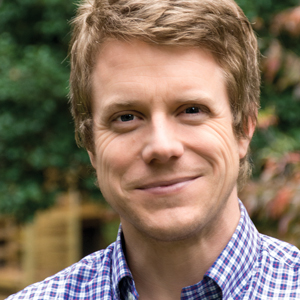I wanted archery.
Instead, I ended up at the soccer station, running around orange cones and listening for the whistle. Coach smoked cigarettes between penalty kicks. He also showed up late, wearing polyester shorts. Despite his shortcomings, the camp rumor was that he had been in the Olympics and won a bronze medal. He yelled key phrases like: “That-a-boy!” and “No pain, no gain.” It was brutal out there in that July heat, eating dirt, and sprinting to the ball. Camp was about survival.
One day, while we were taking headers, I glanced beyond our field and saw another group of campers who didn’t seem to be doing any running at all. They were a calmer bunch – just standing around and staring at bales of hay. It seemed that for them, the toughest part, besides pulling back the bow, was yanking out the arrows from the red, blue, and yellow targets. I wanted to be like them and wear a bracer. I wanted a bulls-eye. It was a skill I needed, less out of respect for Robin Hood and more as an admirer of Bo and Luke Duke. So when Coach took a drag and set us up for another figure eight drill that ended with a volley, I decided to punt my ball over the Hurricane fence and join the forest archers.
But as I was setting up my exit in a bald spot on the field, I chickened out. I didn’t have the guts or the finesse to execute a proper punt.
After soccer, I headed over to ceramics class in my grass-stained soccer clothes. This time, the game didn’t require signature moves, but rather, pure output. We were little factory workers in that art space, shaping, rolling, and sculpting clay by hand and at the wheel. We made ring holders, paperweights, and amoeba-shaped coasters that crumbled on the way home. As we glazed and baked our art together,
I fell in love with Linda Konerding. She didn’t want anything to do with me, so by the end of the week, I tried to impress her by wearing my disposable, paper sunglasses from my recent eye-dilation appointment. Linda was rendered speechless by my new look. She focused on fashioning the handle on her coffee mug.
Camp was a hodgepodge of a few kids that you knew and most that you didn’t. You went about your day with an air of content, knowing that there was no quiz or test in a few days that required 3×5 flashcards or worksheets. It was like school, but it wasn’t. You became someone else and went all in. You envied the older kids who knew how to break-dance and who wore white glacier glasses. The heat never ruined your day. If you were hot, you sweated a little bit more. You arrived without SPF and returned home in the afternoon with a fresh sunburn. Water was a sign of weakness and something that came out of the garden hose when the faucet wrench wasn’t lost in the mulch. When it was your turn to hydrate, the guy behind you counted to “five Mississippi,” and you were satisfied. Camp was a glimpse into the world.
By the time I went away to Philmont Scout Ranch in Cimarron, New Mexico, the stakes were much higher. It was a 12-day, 50-mile adventure with everything I needed strapped to my back. There were reportedly 200 black bears, a bear for each mile of the camp’s wilderness. So we slept with our food and deodorant tied up – hoisted one hundred feet in the air. Guys hyperventilated on the first day and got blisters that needed to be lanced. We rationed our water and woke up to lightning and hail beating up our nylon tents. There were fights about who got the last bit of oatmeal and arguments that the trail was too steep. But there were also jokes and banter between the thirteen of us. I still have my journal from that trek. I was in seventh grade, and it was my first time on an airplane – my first time really away from home.
When Atticus, my firstborn, first signed up for a sleep-away camp, he complained before spring had even started. It wasn’t just an argument about not going. He didn’t want to leave home. We would tuck him in at night, and he would start crying.
“Why are you upset?”
“I don’t want to go to camp.”
His decision was based on fear. He’d never been away. Home was safe. A place where he could wake up without a bugle and feel the air-conditioning flutter his hair. Camp would mean hanging out with new kids and doing what he hadn’t mastered. He would be in charge of himself. Putting your first toe into the world feels unbearable, but it must be done. We knew he needed to get away and answer the universal call of exploration and discovery. We wanted him to feel more independent, to stretch himself, and to figure out a bit more about life on his own. There wouldn’t be any corners to cut.
They have a camp for everything now – Ninja Warrior camp, chess camp, LEGO camp, basketball camp. There are camps over Christmas break and for whenever a national holiday falls on a Monday. Being a camper is no longer a seasonal activity. You can sign up on a whim, and you don’t need a Gore-Tex tent or a summer sleeping bag.
It’s a good thing. Each camp pushes our boys to chisel away at their insecurities. They come back with scars of discovery and a little more personality. They find their footing, self-confidence, and passion.
At pickup, Atticus looks dirty and six inches taller. He’s exhausted, but proud to say that he shot some arrows and hit a bulls-eye. Like a potter who works the clay, his shape grows more defined.




